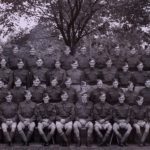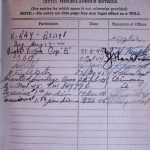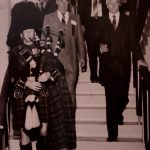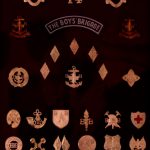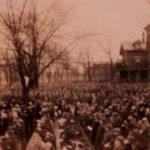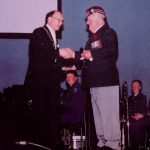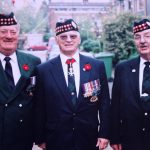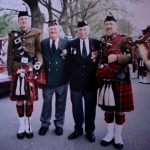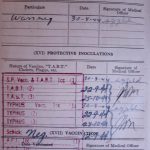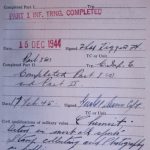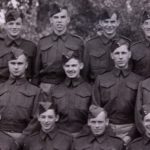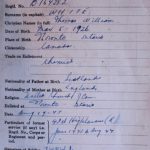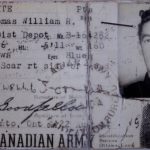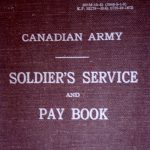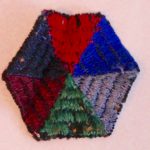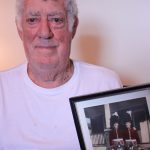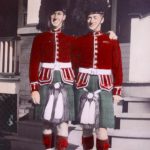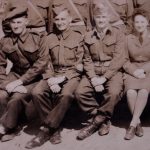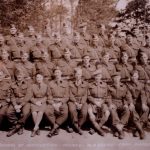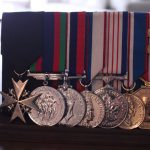Born in 1926, Tom White grew up in Toronto against the backdrop of the Great Depression. He remembers his mother’s recipes from that time period, and the afternoons spent at Saturday matinees. He also remembers his schooling, and the lessons from an Oakwood Collegiate geography teacher that were imparted to students who thought they’d soon be off to war. And that was something that Tom expected, and for which he was already preparing as a member of the Rotary Highland cadets. His father, uncles and brother were in the 48th Highlanders, and his grandfather had been in the Royal Scots Highland regiment in Britain. Upon graduation, Tom went to work for Lever Brothers, but the family’s military tradition called to him, and in 1944 Tom joined up when he turned 18. He soon found himself at the Horse Palace, and then training in Brantford, where Tom was retained as an instructor, even though he had wanted to go on to advanced training. From there he went to Camp Borden and attended the Infantry School of Instruction, and the next stop for him was Meaford and Battle School, where he trained soldiers for the battle they would face overseas. Tom’s job was to expose men to live fire and explosions, and to train them in the weapons they’d be using, including the Bren and Tommy guns. It was at this time the war in Europe came to an end, and Tom expected and was told that he would be sent to the Pacific theatre. But the atomic bombs brought the war to an end, though Tom continued to serve the regiment from 1946-51. He also returned to Lever Brothers and began a family; when his wife Eileen passed away, he returned to the 48th and took over the Cadet corps, eventually taking them to Scotland and the Netherlands, where he experienced the generosity of the Dutch people. Tom is a dedicated member of the 48th and his lifelong commitment to the regiment can be seen in his good works.
We met Tom courtesy of the 48th Highlanders and Al Kowalenko, and Scott Masters interviewed Tom in his home in September 2018.
Videos
Click next video below to keep watching
